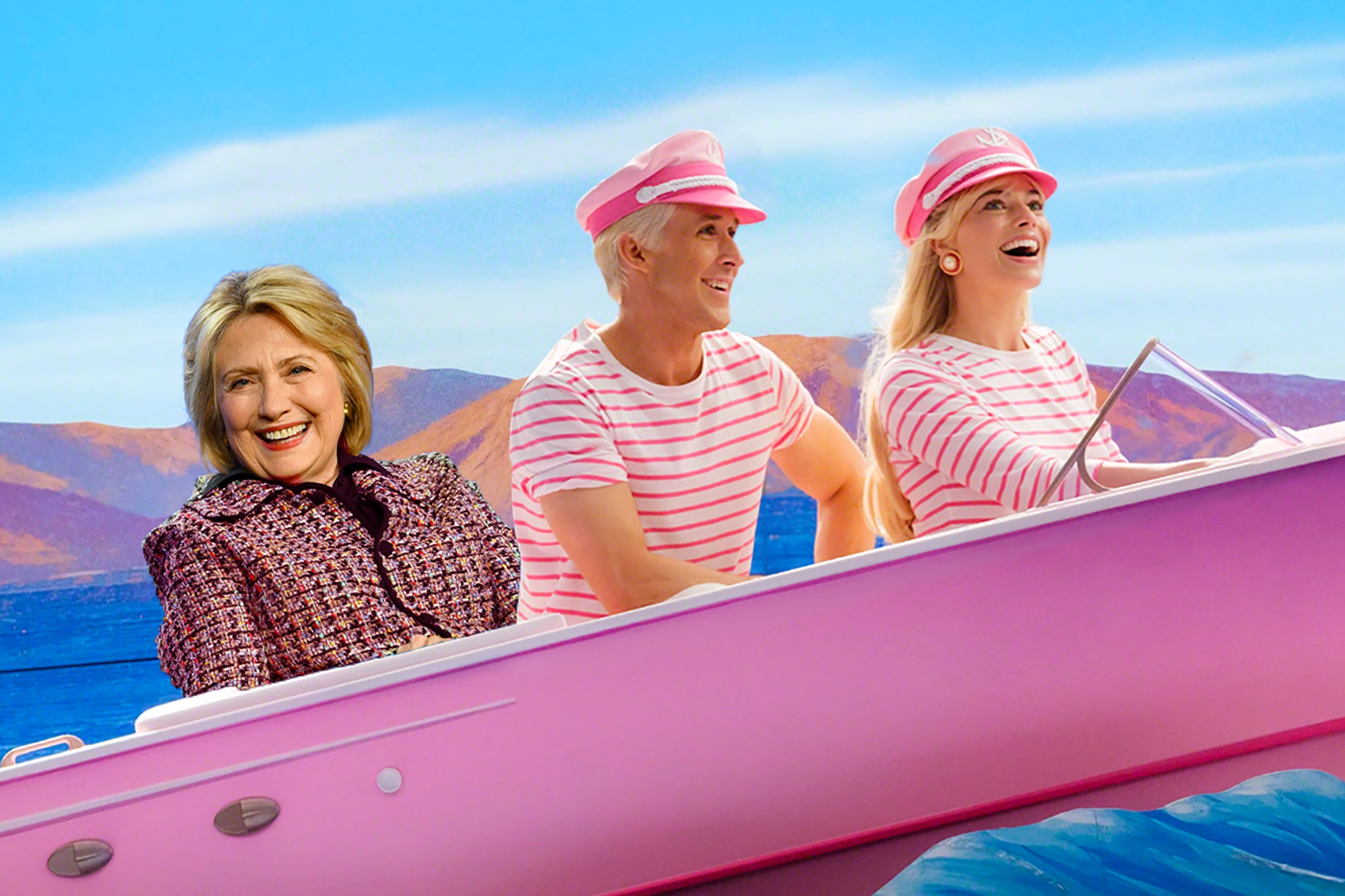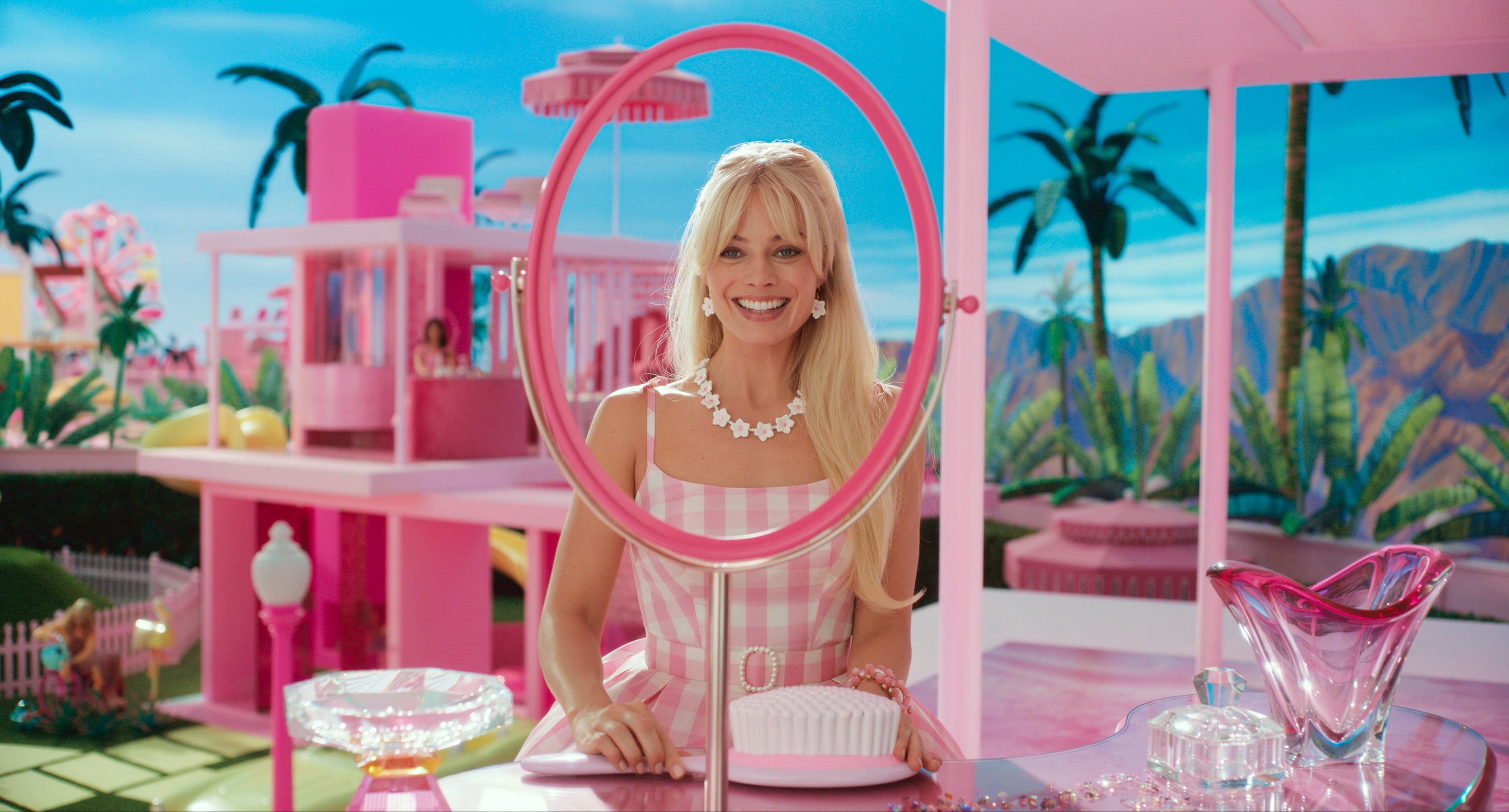This Barbie is… Hillary Clinton? Politicians playing film critic is always excruciating
The former US presidential candidate shared her support for ‘Barbie’ after the film was ‘snubbed’ in this week’s Oscar nominations. Her post is pure weapons-grade cringe, writes Louis Chilton – but at least she’s not alone


Your support helps us to tell the story
From reproductive rights to climate change to Big Tech, The Independent is on the ground when the story is developing. Whether it's investigating the financials of Elon Musk's pro-Trump PAC or producing our latest documentary, 'The A Word', which shines a light on the American women fighting for reproductive rights, we know how important it is to parse out the facts from the messaging.
At such a critical moment in US history, we need reporters on the ground. Your donation allows us to keep sending journalists to speak to both sides of the story.
The Independent is trusted by Americans across the entire political spectrum. And unlike many other quality news outlets, we choose not to lock Americans out of our reporting and analysis with paywalls. We believe quality journalism should be available to everyone, paid for by those who can afford it.
Your support makes all the difference.In the hours after the Oscar nominations were announced on Tuesday, dissent seemed to swell like the onset of a monsoon. Barbie – the £1.1bn-grossing Mattel toy adaptation directed by Greta Gerwig – had been snubbed! At least, that’s what many of the film’s fans – and some of the stars – were suggesting, after Barbie failed to merit nominations in the Best Director and Best Actress categories, for Gerwig and Margot Robbie respectively. Never one to let a good pop culture soundbite go unaired, former Democratic presidential candidate Hillary Clinton took to social media to concoct a personal analogy. “Greta & Margot, While it can sting to win the box office but not take home the gold, your millions of fans love you. You’re both so much more than Kenough,” she wrote, signing off the tweet with the hashtag “HillaryBarbie”.
Now, even if we leave aside the factual spuriousness (both Gerwig and Robbie were in fact both nominated for Oscars, in the Best Adapted Screenplay and Best Picture categories respectively), it’s still hard to read Clinton’s message and do anything but giddily cringe. This is, after all, the same woman who infamously urged voters to “Pokémon Go to the polls”; there’s something about Clinton’s efforts to appear like a normal, pop culture-consuming human that rattles with disingenuity. But the former First Lady can take some solace in the knowledge that she’s not alone. The fact is, there’s nothing more ruinous for a piece of art’s cultural cache than the endorsement of a politician.
It’s a phenomenon that transcends party lines and ideology. Think of David Cameron professing his love of The Smiths, which prompted guitarist Johnny Marr to “forbid” him from liking the band’s music. Or Matt Hancock claiming to be a fan of grime artist Skepta while being unable to name a single one of his tracks. Or the myriad clunky pop culture references Sir Keir Starmer sprinkles throughout his PMQs. (An eye-roll-inducing joke about Line of Duty remains a particular nadir.) Some artists are, of course, too big to be brought down by a mere podium prowler. Taylor Swift wouldn’t have batted an eye when Rishi Sunak outed himself as a Swiftie last year. (Though Swift is insulated by her mainstream ubiquity – there is nothing remotely edgy or “underground” about her brand that could be tarnished with the approval of authority.)
Sometimes, the boundary between politics and entertainment becomes even more blurred: cutting out the middle man, elected officials find a more direct way to appeal to our viewing habits. Joe Biden made a stiff, insipid cameo on the NBC sitcom Parks and Recreation. Hillary Clinton had a wretched and obsequious appearance in Broad City, flattening the buzzy sitcom’s subversive reputation overnight. Go back further, and you’ve got everyone from Tony Blair (The Simpsons) to Nancy Reagan (Diff’rent Strokes) to Rudy Giuliani (Seinfeld) creaking their way through sitcom guest spots. (Al Gore’s brief turn on 30 Rock is a hilarious exception.)
One of the few politicians to even semi-successfully walk the line of “pop culture appreciator” is Barack Obama, whose reputation for being well-read and authentically cultured makes him an oddity among the pod people of the government sphere. His yearly best-of lists (books/films/music) are usually a smorgasbord of the middlebrow, but do attest to a broad and zeitgeist-conscious enthusiasm for the arts.
He’s not exempt from criticism, however: conspiracy theories abound as to whether his picks are in fact selected by staffers, with a careful eye towards charming particular voter demographics. Obama’s lucrative production deal with Netflix has also tarnished some of the spirit of the endeavour. Last year’s end-of-year list began with three movies he produced: Rustin, Leave the World Behind and American Symphony. Meanwhile, a cynic might question the omission of Killers of the Flower Moon – exactly the kind of muscular, intelligent, and socially conscious film that he has exalted in the past – which just happened to be released by Apple TV+, one of Netflix’s main competitors.

Like oil and water, or nuts and gum, politicians and pop culture simply do not mix well. If Clinton really wanted to support Barbie, she’d have probably been better off sending an endorsement to some of the movie’s competitors. (Though #HillaryOppenheimer sounds like a can of implicational worms.) It’s fine for politicians to enjoy a film, and fine, of course, for them to talk about this. But more often than not, you get the feeling they’re just trying to score points. As a Barbie fan like Clinton might say: it’s simply not good Kenough.
Join our commenting forum
Join thought-provoking conversations, follow other Independent readers and see their replies
Comments